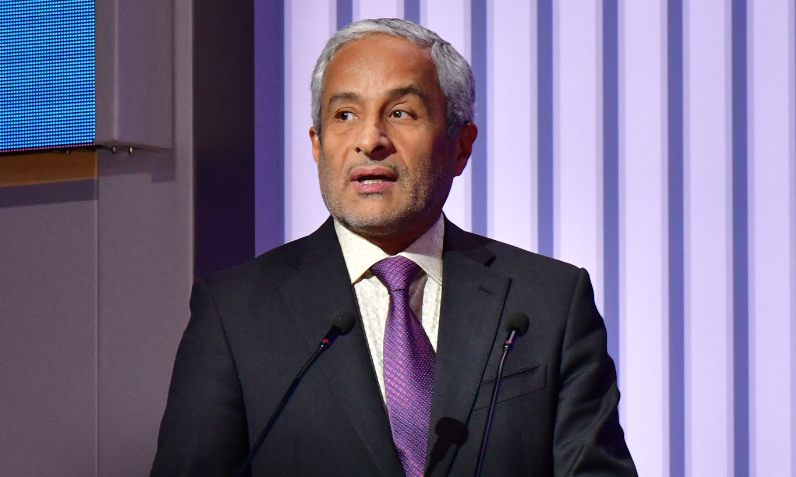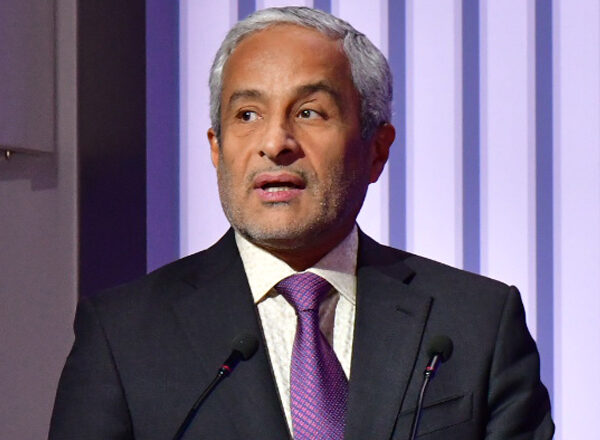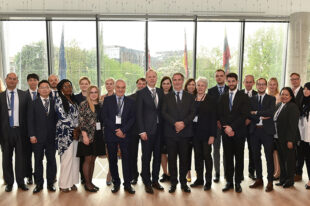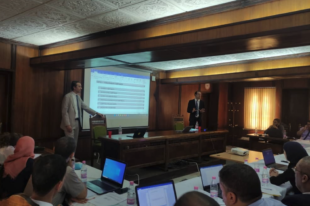Technology is driving change in society, and different professions are rediscovering roles and aligning themselves with the technological direction of the future. The auditing profession cannot be immune to these effects.
by Dr. Harib Saeed Al Amimi, President, State Audit Institution of the United Arab Emirates

Technology is driving change in society, and different professions are rediscovering roles and aligning themselves with the technological direction of the future.
The auditing profession cannot be immune to these effects. With fast-paced and disruptive advancement in science and technology, it is imperative the auditing professing keep pace, particularly if we, as Supreme Audit Institutions (SAIs), are to remain relevant.
Some technologies having great potential to shape human destiny are already here (earlier than we had perceived). Blockchain, Robotic Process Automation, Artificial Intelligence (AI) and Machine Learning are no longer merely topics of debate in research journals—practical applications have already been employed in the world of auditing. For example, the United Arab Emirates (UAE) launched “Emirates Blockchain Strategy 2021” with an aim to transform 50 percent of government transactions onto a Blockchain platform.
As an international group of SAIs, we have realized the opportunities science and technology offer us to add value to our work. Many are taking full advantage of Computer-Aided Audit Tools and data analytics to increase population coverage and improve risk identification. SAIs are also using technology, such as Audit Management Information Systems, to enhance workflow.
Some emerging technologies are materially influencing audit work, such as Blockchain, which can help reduce efforts related to testing, verifying and authenticating detailed physical documents. Blockchain’s decentralized, distributed universal ledger makes every transaction immutable and provides a high level of transaction assurance and accuracy.
Science and technology are progressively moving beyond auditor-led analytics. Robotic Process Automation has the potential to consume repetitive audit work and do so more accurately, reliably and tirelessly in a fraction of the time. This technology will allow auditors to work at a higher level and perform more meaningful work.
AI and Machine Learning are, perhaps, the two areas of science and technology having the greatest potential to determine the audit profession’s direction and future. Machine Learning, a subset of AI, seeks to use machines and algorithms to perform intelligent work that mimics the intelligence of a human auditor. The future of audit will not be solely about robots Robotic Process Automation. Machines will learn from audit work and apply auditor intelligence to similar data.
AI will be leveraged to produce auditing algorithms that will replicate the collective wisdom of an army of auditing experts. This can lead to deeper analysis and insights on pre-fed criteria, as well as on the behavioral basis of huge, complex and multi-source datasets.
Will these developments in science and technology ultimately lead to robot auditors, completely replacing human auditors? Certainly not. However, in the not-too-distant future, such developments will likely augment tedious, repetitive audit work and present exciting opportunities.
Instead, public audit in the future will leverage technology. Auditor judgment and intelligent skepticism will increase and will reinforce the power of machines.
The future public auditor will increase focus on value-for-money audits and employ more creative and intelligent work extending beyond the boundaries of transactional audit and account certification.
Keeping pace with the transformation science and technology brings and positioning ourselves for future governance models also equates to improving current skills and acquiring new ones, improvising work processes, and enhancing hiring strategies.
Public audit in the future will leverage technology. Auditor judgment and intelligent skepticism will increase and will reinforce the power of machines.
Auditing how governments treat these developments—in policies, regulations and other relevant programs—will be critical. Emerging technologies hold substantial promise for improving human life and economic competitiveness, but they also pose new risks.
With the potential to displace workers in some sectors, require new skills and adaptability to changing workforce needs, and exacerbate socioeconomic inequality, governments and SAIs must better understand the broad promise, consequences and policy considerations resulting from these developments.
Our future success will be driven and powered by diverse technologies. It is time we keep pulse on developments in science and technology and how they can interface with our audit work in the public sector.
Recognizing this need, the International Organization of Supreme Audit Institutions (INTOSAI) Governing Board recently approved the new Working Group on Impact of Science and Technology on Auditing (WGISTA).
The inaugural WGISTA meeting will take place April 20-21, 2020, in Abu Dhabi, and the WGISTA Chair (UAE) and Vice Chair (USA) invite all INTOSAI member SAIs and international organizations to join this group and contribute to the exciting work of tracking the latest developments in science and technology that will affect audit work and understanding how to position ourselves to be more productive, relevant and value adding to national governance in the face of this ever-changing technological landscape.
To join the WGISTA, submit a written application to the WGISTA Chair, SAI UAE, at wgista@saiuae.gov.ae.






